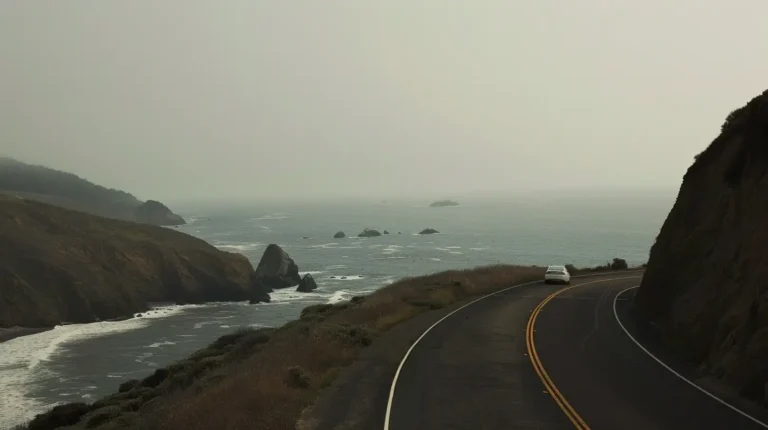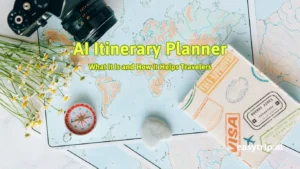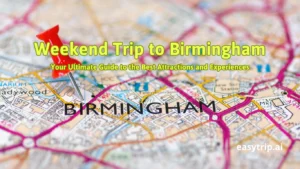Introduction: An Italian Odyssey – 10 Days in Italy, through Culture, History, and Flavors
Italy—a country where every cobblestone street, every ancient ruin, and every plate of pasta tells a story. Planning a 10-day journey through this timeless land is like curating a masterpiece, where each brushstroke must perfectly capture the essence of la dolce vita. This itinerary is your guide to experiencing Italy not just as a tourist, but as a traveler who savors the nuances of its culture, history, and gastronomy. We’ll dive deep into iconic cities and regions, blending the must-sees with the hidden treasures that lie just off the beaten path.
Day 1-3: Rome – Walking in the Footsteps of Emperors and Popes
Rome, the Eternal City, where ancient history and vibrant modern life coexist in perfect harmony. Your journey begins here, in a city that feels more like a living museum. On your first day, immerse yourself in the grandeur of ancient Rome. The
Colosseum stands as a testament to the city’s gladiatorial past, while the
Roman Forum and
Palatine Hill offer a glimpse into the heart of the Roman Empire. As you wander through these ruins, you can almost hear the echoes of history whispering through the marble columns and ancient pathways.
Day two brings you to
Vatican City, the smallest independent state in the world and the spiritual epicenter of Catholicism. The
Vatican Museums house a treasure trove of art, but the crowning glory is the
Sistine Chapel, where Michelangelo’s masterpiece sprawls across the ceiling in a breathtaking display of human achievement. Afterward, stand in awe beneath the dome of
St. Peter’s Basilica, where every inch is adorned with intricate artistry and centuries of history.
Your third day in Rome is reserved for exploring its historic center. Stroll through the bustling streets to discover the architectural marvel of the
Pantheon, the elegance of the
Trevi Fountain, and the iconic
Spanish Steps. Let the energy of
Piazza Navona and
Piazza di Spagna pull you in as you savor the Roman culinary delights in local trattorias, where each bite is a celebration of Italy’s rich gastronomic heritage.
Day 4-5: Florence – The Renaissance Heartbeat
A swift train ride whisks you to
Florence, the cradle of the Renaissance, where art, history, and culture converge in an intoxicating blend. Start your exploration with the majestic
Florence Cathedral (Duomo), whose dome, engineered by Brunelleschi, dominates the city’s skyline. The
Uffizi Gallery is next, where works by masters like Botticelli, Leonardo da Vinci, and Caravaggio transport you back to the height of Renaissance brilliance.
No visit to Florence is complete without encountering
Michelangelo’s David at the
Accademia Gallery. This iconic statue, carved from a single block of marble, embodies the spirit of the Renaissance. As you cross the
Ponte Vecchio, pause to admire the rows of shops selling gold and silver, a tradition that dates back centuries. End your day with a leisurely stroll through the
Boboli Gardens, where the manicured landscapes offer a peaceful retreat from the city’s vibrant energy.
On your second day in Florence, take a detour into the Tuscan countryside. The medieval town of
Siena beckons with its stunning cathedral and the famous Piazza del Campo, home to the Palio horse race. Alternatively, lose yourself in the rolling hills of
Chianti, where vineyards stretch as far as the eye can see. Indulge in a wine tasting tour, sampling the region’s renowned Chianti Classico while learning about the rich traditions of Tuscan winemaking.
Day 6-7: Venice – A City of Water and Wonders
Next, you’ll find yourself in the ethereal city of
Venice, where gondolas glide through a labyrinth of canals and every corner reveals a new marvel. Start your Venetian adventure in
St. Mark’s Square (Piazza San Marco), the heart of the city. The
Basilica di San Marco, with its opulent mosaics and golden altarpiece, speaks of Venice’s historic wealth and power. Adjacent is the
Doge’s Palace, a Gothic masterpiece that once housed the rulers of Venice and now offers a glimpse into the city’s storied past.
No visit to Venice is complete without a gondola ride. Drift through the city’s canals, under the shadow of ancient bridges, and let the water reflect the beauty of the centuries-old architecture. Venture to the islands of
Murano and
Burano, where Venice’s rich artisan traditions come to life. In Murano, glassmakers demonstrate the age-old craft of glassblowing, while Burano’s brightly colored houses and intricate lace-making offer a visual feast that’s as vibrant as the local culture.
Day 8: Cinque Terre – The Jewel of the Ligurian Coast
A train journey along the coast brings you to
Cinque Terre, a collection of five picturesque villages clinging to the rugged cliffs of the Ligurian coast. Each village—
Monterosso al Mare, Vernazza, Corniglia, Manarola, and Riomaggiore—has its own distinct charm, but all share breathtaking views of the azure sea and pastel-colored houses that seem to defy gravity.
Spend your day hiking the trails that connect these villages, such as the famous
Sentiero Azzurro, which offers spectacular panoramas at every turn. After working up an appetite, indulge in the region’s seafood, perhaps sampling the local specialty,
trofie al pesto, paired with a glass of crisp
Vermentino wine. As the sun sets, the golden light transforms the landscape into a scene straight out of a postcard.
Day 9: Milan – The Style and Substance of Italy
From the serene coast, your journey takes a turn towards the cosmopolitan as you arrive in
Milan, Italy’s fashion and design capital. Begin your exploration with a visit to the
Milan Cathedral (Duomo di Milano), a Gothic masterpiece that dominates the city’s skyline. Take the lift to the rooftop for a closer look at the intricate spires and a panoramic view of the city below.
Next, stroll through the
Galleria Vittorio Emanuele II, a stunning 19th-century arcade that is home to luxury boutiques and historic cafes. Here, shopping isn’t just a pastime—it’s an art form. No visit to Milan would be complete without seeing
Leonardo da Vinci’s Last Supper, housed in the
Convent of Santa Maria delle Grazie. This iconic fresco, depicting the moment Jesus announced that one of his disciples would betray him, is a powerful reminder of Milan’s rich artistic heritage.
As evening falls, explore the city’s vibrant fashion district, known as the
Quadrilatero della Moda, where high-end fashion houses and ateliers showcase the latest in Italian design. Whether you’re window shopping or splurging on a luxury item, this district embodies the elegance and sophistication that Milan is famous for.
Day 10: Lake Como – A Final Breath of Tranquility
Conclude your Italian odyssey with a day of relaxation at
Lake Como, where the serene waters are framed by the majestic Alps. Take a boat tour to fully appreciate the lake’s beauty, stopping at charming villages like
Bellagio and
Varenna. These quaint towns are known for their cobblestone streets, flower-filled balconies, and historic villas that line the shores.
A visit to the gardens of
Villa Carlotta or
Villa del Balbianello offers a peaceful retreat into nature, with lush landscapes and panoramic views that are the epitome of Italian elegance. As you breathe in the fresh mountain air, take a moment to reflect on the journey that has taken you through the heart of Italy, from its bustling cities to its tranquil countryside.
Conclusion: The Essence of Italy in 10 Unforgettable Days
This 10-day itinerary through Italy is more than just a trip; it’s an immersion into a country where every city, every village, and every meal tells a story. From the ancient ruins of Rome to the Renaissance splendor of Florence, the romantic canals of Venice, and the natural beauty of Cinque Terre and Lake Como, each destination offers a unique slice of Italian life. This journey is designed not just to show you the sights, but to make you feel the heartbeat of Italy, leaving you with memories that will linger long after the trip has ended.
TL;DR: Italy in 10 Days
Experience the best of Italy in 10 days with visits to Rome, Florence, Venice, Cinque Terre, Milan, and Lake Como. From ancient ruins and
Renaissance art to stunning landscapes and culinary delights, this travel plan covers essential Italian experiences.
FAQ Section
What is the best time to visit Italy?
The best time to visit Italy is during the spring (April to June) and fall (September to October) when the weather is pleasant, and the tourist crowds are smaller.
How can I get around Italy?
Italy has an extensive public transportation network. Trains are a convenient option to travel between major cities, while renting a car might be beneficial for exploring the countryside.
What are the must-try foods in Italy?
Don’t leave Italy without trying local specialties such as pizza in Naples, gelato in Florence, risotto in Milan, and seafood in Venice.
Fun Facts
| Italy has 55 UNESCO World Heritage Sites |
Italy boasts the highest number of cultural and natural treasures listed by UNESCO, ranging from historical centers like Rome, Florence, and Venice to natural marvels like the Dolomites and the Amalfi Coast. |
| Italian is the official language, but there are many dialects |
Each region in Italy has its own distinct dialect, sometimes so different that they are mutually incomprehensible. These dialects are a testament to Italy’s diverse cultural history. |
| Italy is the birthplace of the Renaissance |
The Renaissance started in the 14th century in Italy and spread across Europe, bringing a renewed interest in humanism, science, exploration, and art with figures like Leonardo da Vinci and Michelangelo. |
| Italy invented many foods loved worldwide |
Italian cuisine has given the world dishes like pizza, lasagna, and gelato, which are enjoyed in countless countries across the globe. |
| The Vatican City, the smallest country in the world, is located within Rome |
Home to the Pope, the Vatican City is an independent city-state enclaved within Rome and is the spiritual and administrative center of the Roman Catholic Church. |
| The Colosseum is one of the most visited monuments in Italy |
The iconic amphitheater in Rome, built in 80 AD, could hold between 50,000 and 80,000 spectators and was primarily used for gladiatorial contests and public spectacles such as mock sea battles, animal hunts, and executions. |
Closing Remarks
Thank you for considering this carefully curated itinerary for your
Italian adventure. Whether you’re seeking art, history, nature, or culinary delights, this plan provides a balanced approach to experiencing Italy’s rich cultural tapestry. Buon viaggio!








